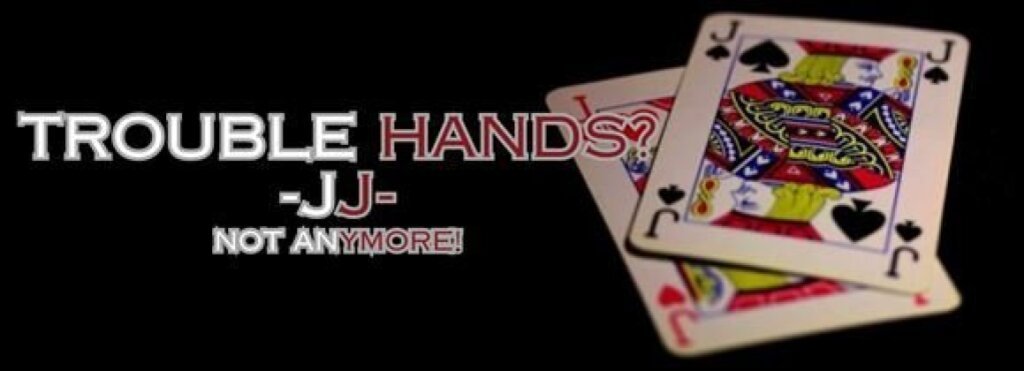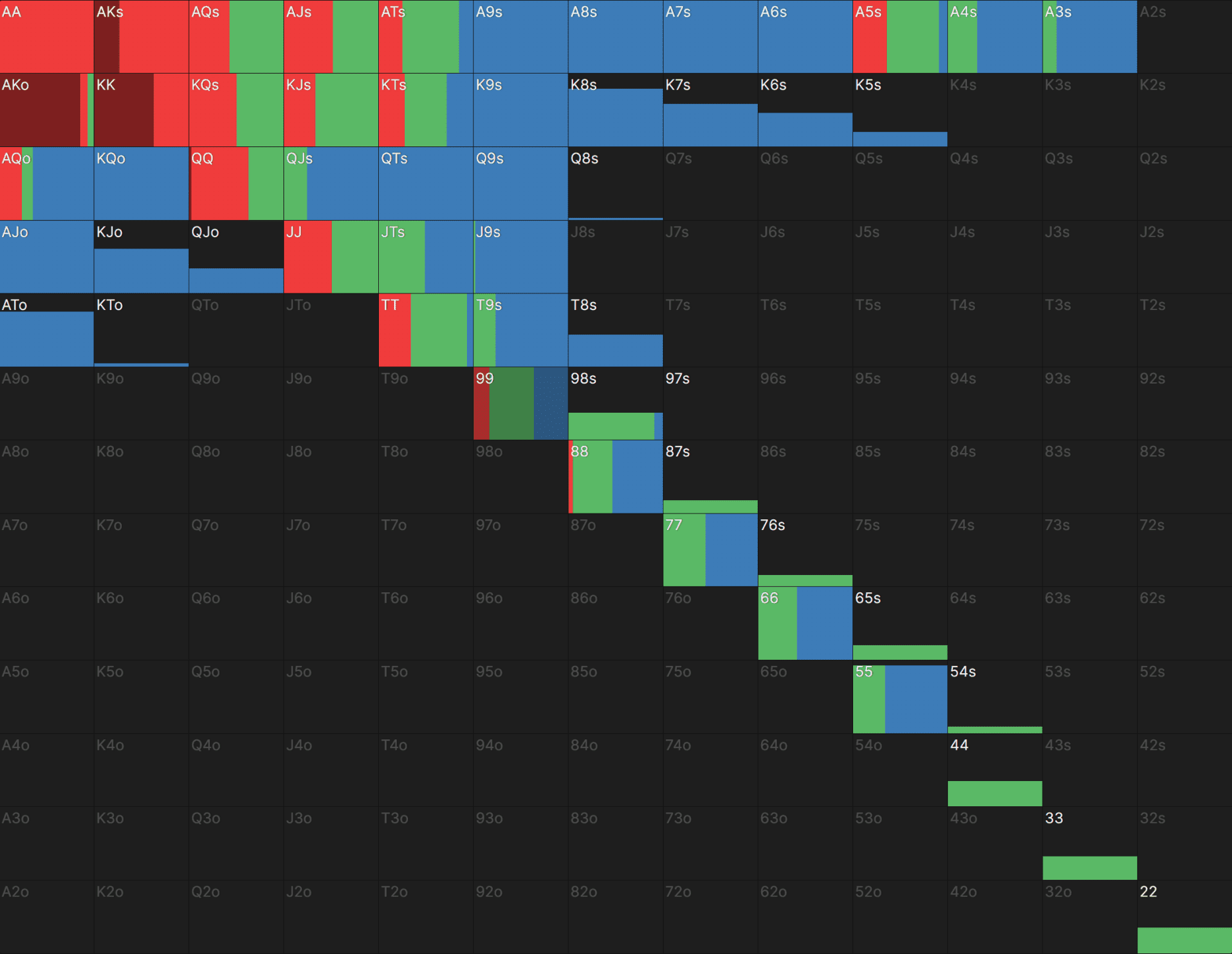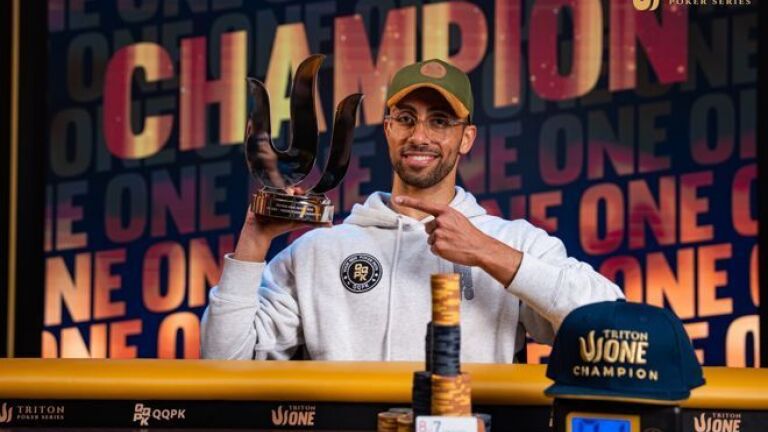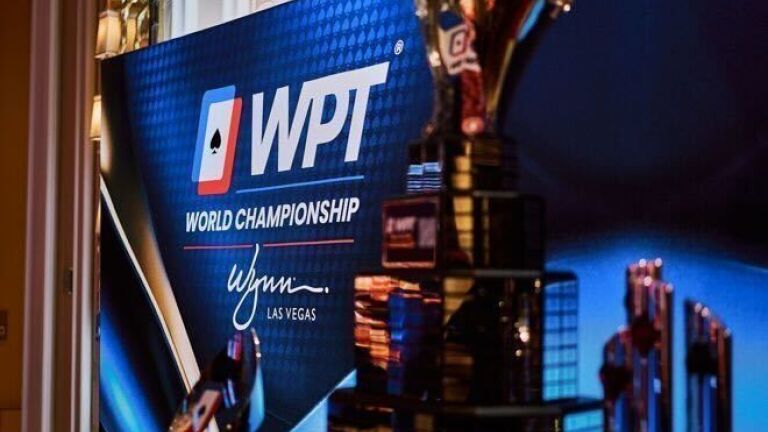Do you often struggle with certain hands in various spots? Today, we'll discuss what causes trouble hands and spots. Are these reasons truthful or sufficient? How can we shift our minds to deal with our emotional attachment? We'll examine the subject through the lens of having JJ as our starting hand, as many poker players detest getting in action with this hand.
Why do we get into trouble with strong hands?
First, we must understand why we sometimes get in trouble with strong hands. The main reason is an irrational emotional attachment to our hands. When our hole cards are top-tier strength, we might feel entitled to the pot or win a full stack.
Have you ever felt that the board ran out horribly against your aces again? Still, you have invested 30-50bb-s already, and you feel committed. Immediately, you start to search for hands that might still call you. Or Villain donk bets, raises you, etc., and you are trying to find bluffing hands in her range to argue for your bets and calls. Well, it's too late, my friend; you should've foreseen this coming. Of course, not in an irrational, loss-avoiding way, but by being contextually aware.
The issue is twofold: An emotional attachment leads to illogical, irrational plays and omits all factors and circumstances that are valuable information. Thus, we end up playing the entire hand theoretically in a suboptimal way. To put it simply, our preflop emotional attachment leads to –EV plays during the entire hand.
„I hate JJ” - Sample
Consider the following example: You have JJ, and after getting 3-betted by an aggressive player, you decide to 4-bet your hand. Villain calls, and the flop comes ♥️A♠️5♦️2. This is a fantastic flop for your range. You should range c-bet this board with a small size almost in any configuration, but you already have an itching feeling to invest more into this pot.
Did you notice that some of the information is missing from the description of the hand? We focused so much on our starting hand and one characteristic of our opponent (general aggression) that we are led by our emotions now. Fear of investing more because the flop is not ideal for our specific hand. We stop thinking about ranges, visualizing that Villain could have many Ax combos. Indeed, we should've started our list by seeing the entire spot.
We know our hand, the action and that Villain is aggressive. However, we ignored the positions and the actual perceived ranges. If this is a UTG vs MP battle, our preflop play will already be marginal. After examining the aggressive Villain, we conclude that she plays 19/16/5 (VPIP/PRF/3-bet respectively). So, her aggression might come naturally from playing tighter ranges preflop. If you deep diver, you see that she 3-bets 4% from MP vs UTG (less or around the half she was supposed to, in theory),
you realize that you caused your troubles by 4-betting JJ here. Although your charts suggested doing so sometimes, now you invested 24bb-s by 4-betting and feel forced to c-bet another 6-8bb because it's a rangebet board. You've thrown out 30bb+ to check-fold on the turn and ended up with a plummeting redline. Congrats!
How to approach our trouble hands?
How to avoid being the one who says the following things: "I hate JJ, they always lose to some random hand", "I prefer to play AQo passively, I never win big but always run into AK", etc.?
First, don't attach emotions to good starting hands or a flopped 80%+ hand like set, etc. We all know the excitement of getting dealt aces or any powerful starting hands. Naturally, our emotions start to fly simply because getting the top 3-5% of the starting hands happens precisely 3-5% of the time. So, not very often. Still, it would be better to keep calm and play your hand according to the situation. Don't start planning your next trip or buying an expensive accessory you always wanted.
Second, see the entire spot, not just your particular hand. Keep your feet on the ground and focus on maximizing value in that specific spot. Sometimes, the board will run out horribly; evaluate your hand on each street. If it's too marginal to value bet, just don't do it. If it's not good enough to bluffcatch, just muck your hand, and so on, you get the point. Also, at times, these top-tier hands will serve as protectors of your checking range or just as a great bluffcatcher. Don't force yourself to shovel money into the pot just because you have a strong hand. Understand the setup, how good the board is for your range, where your hand is in that range, etc.
Be the type of player who doesn't overplay an excellent starting hand simply because of not taking into account the relevant circumstances of the hand. Be the one who can adapt to wet boards. Equities often change on these boards; you'll be run over if you can't adjust to that. An excellent winning player understands this, and the faster you learn manoeuvring in these spots, the faster you will become one of them.
Summary
Today's lesson is not only about a specific hand or group of strong holdings at some point during the hand. The main takeaway here is contextual awareness. Suppose you learn not to attach emotions to certain hole cards and understand not to feel entitled to the pot because you have strong holdings. In that case, you can switch your focus on factors that actually matter, such as what the ranges are, how a turn or river card changed the EQ of our hand (or the entire range) and how to adapt to this new developing spot. Then, you'll know if your hand is still strong enough to valuebet or if the highest EV play is to strengthen your checking range with it, etc.
Go out there and be confident! Now that you know your fears are irrational, focus on what matters and the things you have power over.



















0 comments